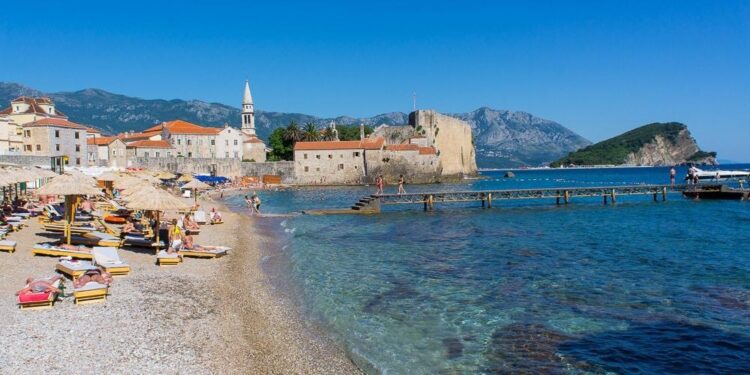Montenegro is edging closer to European Union membership, while Bosnia and Herzegovina faces a critical juncture as it strives to implement key reforms, according to officials and experts monitoring the Western Balkans’ integration process. With Brussels signaling cautious optimism, the European Western Balkans platform highlights the crucial steps required for both countries to meet accession criteria and advance their EU ambitions. This development signals renewed momentum in the region’s long-standing quest to join the EU amid complex political and institutional challenges.
EU Signals Conditional Progress for Montenegro and Bosnia and Herzegovina
The European Union has conveyed a cautiously optimistic stance towards the Western Balkans, highlighting Montenegro’s nearing accession status while emphasizing Bosnia and Herzegovina’s urgent need for comprehensive reforms. EU officials underlined that Montenegro is regarded as being “within reach” of membership, attributing this progress to consistent alignment with EU standards and proactive engagement in the negotiation framework. However, despite positive signals, the Union remains careful, insisting that Montenegro sustain momentum on judicial reforms, anti-corruption measures, and media freedom to solidify its candidacy.
Meanwhile, Bosnia and Herzegovina faces a more conditional outlook, with Brussels emphasizing the imperative of political and institutional reforms as prerequisites for further advancement. Among the priorities identified are:
- Strengthening rule of law and tackling systemic corruption;
- Enhancing minority rights to promote social cohesion;
- Overhauling public administration for improved EU integration readiness;
- Advancing constitutional reforms to meet EU democratic standards.
| Country | Status | Key Conditions | Timeline Outlook |
|---|---|---|---|
| Montenegro | Candidate | Judicial reforms, Media freedom, Anti-corruption | Short-term progress expected |
| Bosnia and Herzegovina | Potential Candidate | Political reform, Rule of law, Constitutional changes | Medium to long-term reforms required |
Key Reforms Needed to Unlock EU Accession Prospects
To advance EU accession prospects, Montenegro and Bosnia and Herzegovina must prioritize comprehensive reforms focusing on governance, rule of law, and economic stability. Strengthening judicial independence and combating corruption remain critical pillars for both countries to enhance public trust and meet EU standards. Additionally, aligning anti-money laundering frameworks and bolstering transparency in public administration are essential to build a robust institutional framework that can withstand scrutiny from Brussels.
Key reform areas include:
- Judicial Reform: Ensuring impartiality and efficiency through restructuring of courts and enhanced training programs.
- Anti-Corruption Measures: Introducing stricter penalties and establishing independent oversight bodies.
- Economic Reforms: Implementing policies to stimulate investment and improve business climate.
- Public Administration: Modernizing services to increase responsiveness and reduce bureaucratic hurdles.
These steps, combined with political will and sustained international support, will pave the way for a smoother accession process.
| Reform Area | Montenegro Progress | BiH Progress |
|---|---|---|
| Judicial Independence | Moderate improvements | Needs significant reform |
| Anti-Corruption | Enhanced enforcement | Legislation pending |
| Economic Policy | Market reforms underway | Early-stage development |
| Public Administration | Digitalization efforts | Fragmented governance |
Strategic Recommendations for Accelerating Western Balkans Integration
To expedite the Western Balkans’ path towards EU membership, targeted reforms must be prioritized at both national and regional levels. Strengthening the rule of law and boosting judicial independence remain pivotal, as transparent legal frameworks build investor confidence and public trust. Equally vital is the enhancement of cross-border cooperation on infrastructure and trade facilitation, ensuring economic integration aligns with EU standards. A unified approach towards combating corruption and improving administrative capacity would also pave the way for smoother accession negotiations.
Political will and sustained dialogue are crucial in transforming ambitious declarations into tangible results. The European Commission’s support can be optimized through tailored technical assistance and monitoring mechanisms that incentivize compliance. Below is an overview of the core strategic pillars necessary to accelerate integration:
| Strategic Pillar | Key Focus | Expected Outcome |
|---|---|---|
| Judicial Reform | Enhance independence & transparency | Increased public trust & legal certainty |
| Economic Integration | Infrastructure & trade harmonization | Boosted regional market access |
| Governance & Anti-corruption | Strengthen institutions & enforcement | Reduced corruption & improved governance |
| Political Dialogue | Foster multi-stakeholder engagement | Enhanced cooperation & negotiation progress |
Key Takeaways
As Montenegro and Bosnia and Herzegovina continue to advance their reform agendas, the prospect of EU membership moves closer from aspiration to achievable goal. While significant challenges remain, the European Western Balkans region signals a strengthened commitment to aligning with EU standards and values. The coming months will be critical in determining whether both countries can meet the necessary benchmarks to secure their place within the Union, marking a pivotal moment for regional integration and stability.
















